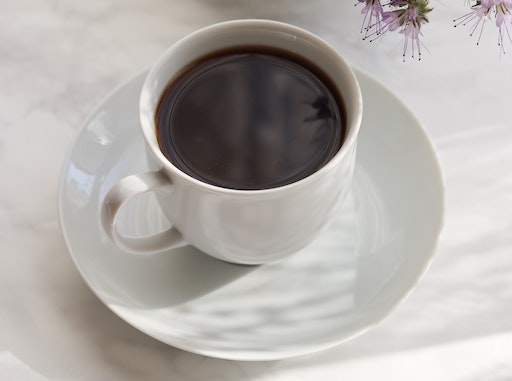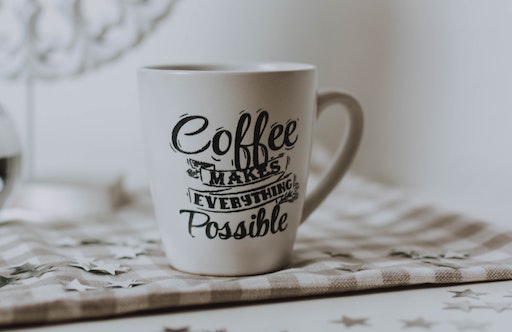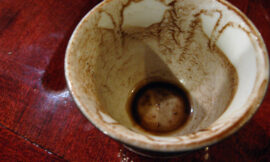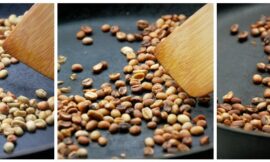The 7 steps to brew your coffee at home
- Choose the Right Coffee Beans
- Measure Your Coffee per Cup
- Use Filtered Water to Brew your Coffee
- Choose Your Coffee Brewing Method
- Brew Coffee at the Right Temperature
- Brew Coffee for the Right Amount of Time
- Store Your Coffee Properly
Let us discuss the 7 steps to brew a perfect cup of coffee at home:
(This is a short version for those who are in a hurry and for a more in depth discussion go further down the page)
Coffee is one of the most popular beverages in the world, and for good reason. It’s a delicious and energising way to start your day, and it’s also a great way to unwind after a long day. But if you’re tired of spending a fortune on coffee shop drinks, it’s time to learn how to brew the perfect cup of coffee at home. In this ultimate guide, we’ll cover everything you need to know to make a delicious cup of coffee right in your own kitchen.
- Choose the Right Coffee Beans
The first step to brewing the perfect cup of coffee is to choose the right beans. Look for high-quality, freshly roasted beans that are free from defects. You can buy whole beans and grind them yourself, or you can buy pre-ground coffee. Just make sure that the grind is appropriate for your brewing method.
By considering the roast level, freshness, origin, variety, and experimenting with different beans, you can find the perfect beans for your taste preferences. The most commonly used coffee beans are Arabica and Robusta, but there are other lesser known varieties that have their own unique flavour profiles.
- Measure Your Coffee per cup
The next step is to measure your coffee. A good rule of thumb is to use one tablespoon of coffee per cup of water. However, you can experiment and fix this ratio to suit your taste preferences. Fixing this ratio according to the type of beans and your brewing method will give you a consistent taste every time.
- Use Filtered Water to Brew your Coffee
The quality of your water can have a big impact on the taste of your coffee. Use filtered water to ensure that your coffee tastes its best.
- Choose Your Brewing Method
There are many different brewing methods to choose from, including drip coffee makers, French presses, pour-over methods, and more. Each method has its own unique advantages and disadvantages, so choose the one that works best for you.
- Brew coffee at the Right Temperature
The ideal brewing temperature for coffee is between 90 and 96 degrees centigrade (approximately 195 and 205 degrees Fahrenheit). If your water is too hot, it can over-extract the coffee and make it taste bitter. If it’s too cool, it won’t extract enough flavour.
- Brew coffee for the Right Amount of Time
The amount of time you brew your coffee will depend on your brewing method. Drip coffee makers typically take around five minutes, while French presses can take up to four minutes. Experiment with different brewing times to find the perfect balance of flavour and strength.
- Store Your Coffee Properly
To keep your coffee fresh and flavourful, store it in an airtight container away from light, heat, and moisture. Avoid storing it in the refrigerator or freezer, as this can cause it to absorb unwanted flavours and aromas.
By following these simple steps, you can brew the perfect cup of coffee right in your own home. Whether you prefer a bold and robust brew or a smooth and mellow cup, there’s a brewing method and bean variety that’s perfect for you. So why not skip the coffee shop and start brewing your own delicious coffee today?
or you may keep reading for a….
Detailed explanation of steps to Brew a Perfect Cup of Coffee at home:

1. Choosing the Right Coffee Beans for a Perfect Cup of Coffee:
Selecting the right coffee beans is essential for brewing a perfect cup of coffee. The roast level, freshness, origin, and variety of the beans are all important factors to consider. Freshly roasted beans are key, as older beans can taste stale and lack flavour. Experimenting with different varieties and roasts can help you discover your favourite flavours and aromas. Arabica beans are generally considered to be of higher quality, while Robusta beans are more bitter and have a higher caffeine content. By considering these factors and experimenting with different beans, you can find the perfect beans for your taste preferences and brewing method. With the right beans, you can brew a delicious and flavourful cup of coffee every time. You can get a complete explanation of factors influencing the selection of right beans in the article ‘How to Choose the Right Coffee Beans for the Perfect Cup of Coffee’
2. Measuring the Right amount of Coffee per cup:
The measurement of coffee is a crucial factor in achieving a perfect brew. Using the right amount of coffee ensures that the flavour and strength of the coffee are balanced, resulting in a delicious cup of coffee. Too little coffee can result in a weak and watery brew, while too much coffee can make the coffee bitter and overpowering.
Measuring coffee accurately also helps to maintain consistency in the brewing process. Consistency ensures that you can replicate your favourite cup of coffee every time you make it.
There are various methods for measuring coffee, including using a scale, a measuring spoon, or a coffee scoop. It is essential to follow the recommended coffee-to-water ratio for the brewing method you are using to achieve the best results.
You must experiment with different measurements to achieve the taste that is perfect for you. You can start with a thumb rule of 1 Tablespoon of Coffee per Cup of hot Water, and then experiment increasing or decreasing the quantity depending upon your taste preference.
3. Impact of Water Quality on the taste of brewed Coffee:
The quality of water can have a significant impact on the taste of coffee. Water that is high in minerals or impurities can affect the flavour and aroma of coffee, and can even make it taste bitter or sour. Here are some ways in which the quality of water can impact the taste of coffee:
- Mineral Content:
Water that is high in minerals, such as calcium and magnesium, can affect the taste of coffee. These minerals can react with the coffee beans and alter the flavour and aroma of the coffee. Water that is too hard can make coffee taste bitter, while water that is too soft can make it taste flat. - Chlorine and Other Chemicals:
Chlorine and other chemicals that are commonly found in tap water can also affect the taste of coffee. These chemicals can give coffee a chemical or metallic taste, and can also affect the aroma of the coffee. - pH Level:
The pH level of water can also impact the taste of coffee. Water that is too acidic or too alkaline can affect the flavour and aroma of the coffee, and can even make it taste sour or bitter.
To ensure that you are brewing the best possible cup of coffee, it’s important to use high-quality water. Consider using filtered water to ensure that your coffee tastes consistent and its best. You can also test the quality of your water using a water testing kit, and adjust the mineral content or pH level as needed. By using high-quality water, you can enjoy a delicious and flavourful cup of coffee every time.
4. Different Brewing Methods:
The brewing method can have a significant impact on the taste of coffee. Different brewing methods can extract different flavours and aromas from the coffee beans, resulting in a unique taste profile. Here are some ways in which the brewing method can affect the taste of coffee:
- Contact Time:
The amount of time that the coffee grounds are in contact with the water can affect the strength and flavour of the coffee. For example, a longer contact time can result in a stronger and more intense coffee, while a shorter contact time can result in a milder and smoother coffee. - Water Temperature:
The temperature of the water used to brew coffee can also affect the taste. Water that is too hot can over-extract the coffee and make it taste bitter, while water that is too cool can under-extract the coffee and make it taste weak. - Filter Type:
The type of filter used in the brewing process can also affect the taste of coffee. Paper filters can remove some of the oils and flavours from the coffee, resulting in a cleaner and brighter taste, while metal filters can allow more oils and flavours to pass through, resulting in a richer and fuller taste. - Pressure:
Some brewing methods, such as espresso, use pressure to extract the flavours and aromas from the coffee beans. The amount of pressure used can affect the taste of the coffee, with higher pressure resulting in a stronger and more intense coffee.
By choosing the right brewing method and adjusting the variables such as contact time, water temperature, filter type, and pressure, you can create a coffee that suits your taste preferences. Experimenting with different brewing methods used around the world can also help you discover new and exciting flavours and aromas in your coffee.
5. Importance of Brewing Coffee at the Right Temperature:
The temperature of the brewing water can have a significant impact on the taste of coffee. The ideal water temperature for brewing coffee is in the range of 90-96°C (195-205°F). Here’s how the temperature of brewing water can affect the coffee:
- Extraction:
The hotter the water, the more extraction occurs from the coffee grounds. This means that hotter water can extract more flavour and aroma from the coffee, resulting in a stronger and more intense cup of coffee. - Bitterness:
If the water temperature is too hot, it can over-extract the coffee and make it taste bitter. This is because the hot water can extract compounds from the coffee that are bitter and unpleasant. - Sourness:
If the water temperature is too low, it can under-extract the coffee and make it taste sour or underdeveloped. This is because the cooler water is not able to extract enough flavour and aroma from the coffee. - Balance:
The ideal water temperature for brewing coffee is in the range of 90-96°C (195-205°F) because it allows for a balanced extraction of flavour and aroma from the coffee. This results in a cup of coffee that is flavourful and well-balanced.
In summary, the temperature of the brewing water can have a significant impact on the taste of coffee. It’s important to use water that is in the ideal temperature range of 90-96°C (195-205°F) to ensure that you are brewing the best possible cup of coffee.
6. Right amount of Time for Brewing a Perfect Cup of Coffee:
Brewing time can have a significant impact on the taste of coffee. If coffee is brewed for too short a time, it may be weak and lacking in flavor. On the other hand, if coffee is brewed for too long, it may become bitter and unpleasant.
The ideal amount of time for brewing coffee can vary depending on the brewing method and personal preference. For example, a French press typically requires a brewing time of 4-5 minutes, while a pour-over may only require 2-3 minutes. Espresso, on the other hand, requires a much shorter brewing time of around 20-30 seconds.
In general, a brewing time of 3-4 minutes is a good starting point for most brewing methods. However, it’s important to experiment with different brewing times to find the ideal time for your personal taste preferences.
7. Storing Coffee properly and It’s Impact on Flavour:
The best way to store coffee is in an airtight container in a cool, dry place away from light, moisture, and strong odors. Exposure to air, moisture, and light can cause coffee to go stale and lose its flavour.
When coffee is roasted, it releases carbon dioxide gas, which can cause the coffee to become stale if not properly stored. Storing coffee in an airtight container helps to prevent the loss of flavour and aroma by reducing the amount of oxygen that comes into contact with the coffee.
Temperature is also an important factor in coffee storage. Coffee should be stored at room temperature or slightly below, as high temperatures can cause the coffee to lose its flavour and aroma more quickly.
I hope that the above has clarified the impact of each step and the science behind it and now you will be able to brew and enjoy and perfect cup of coffee at home with a consistent taste every time. 🙂




